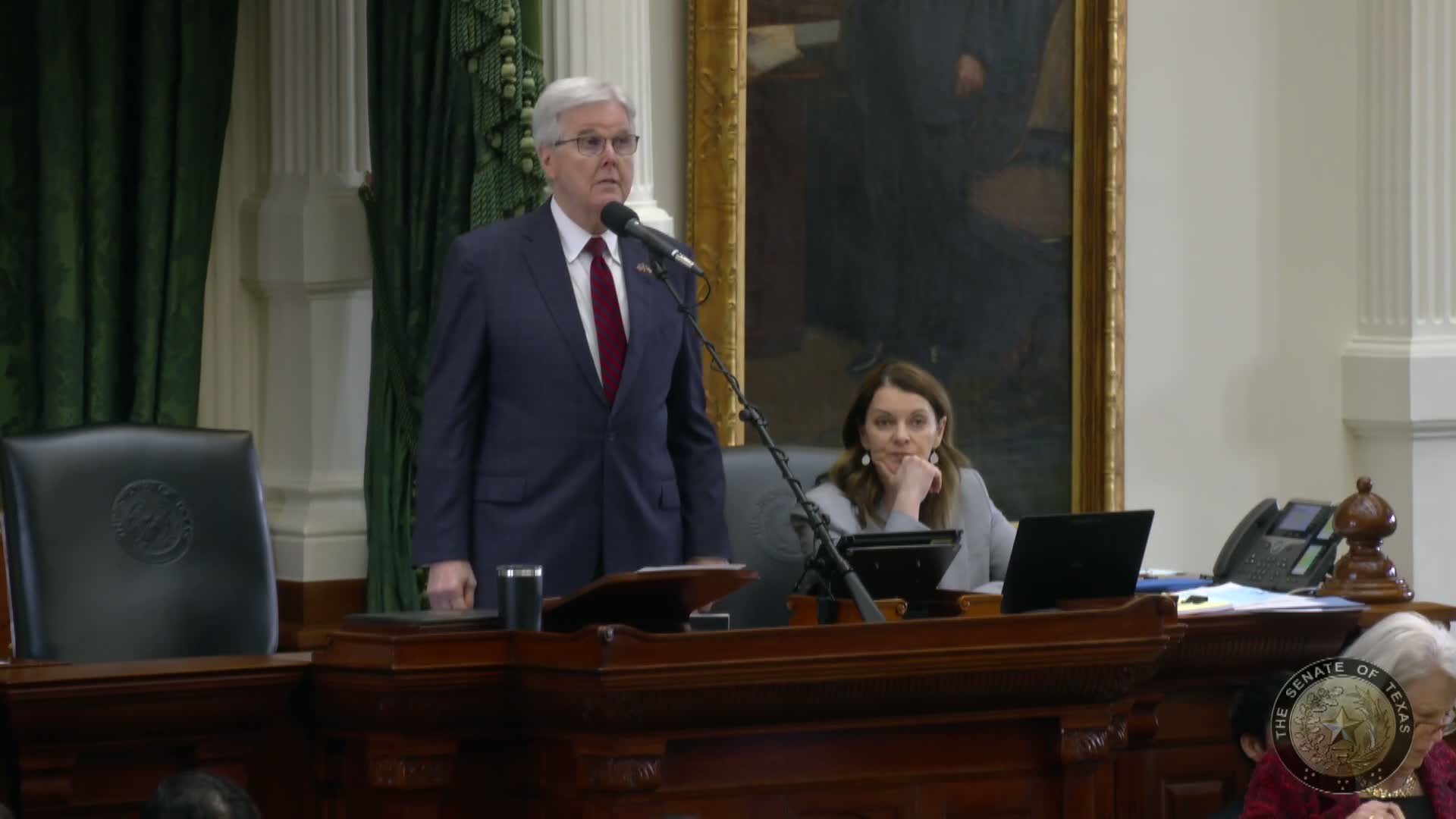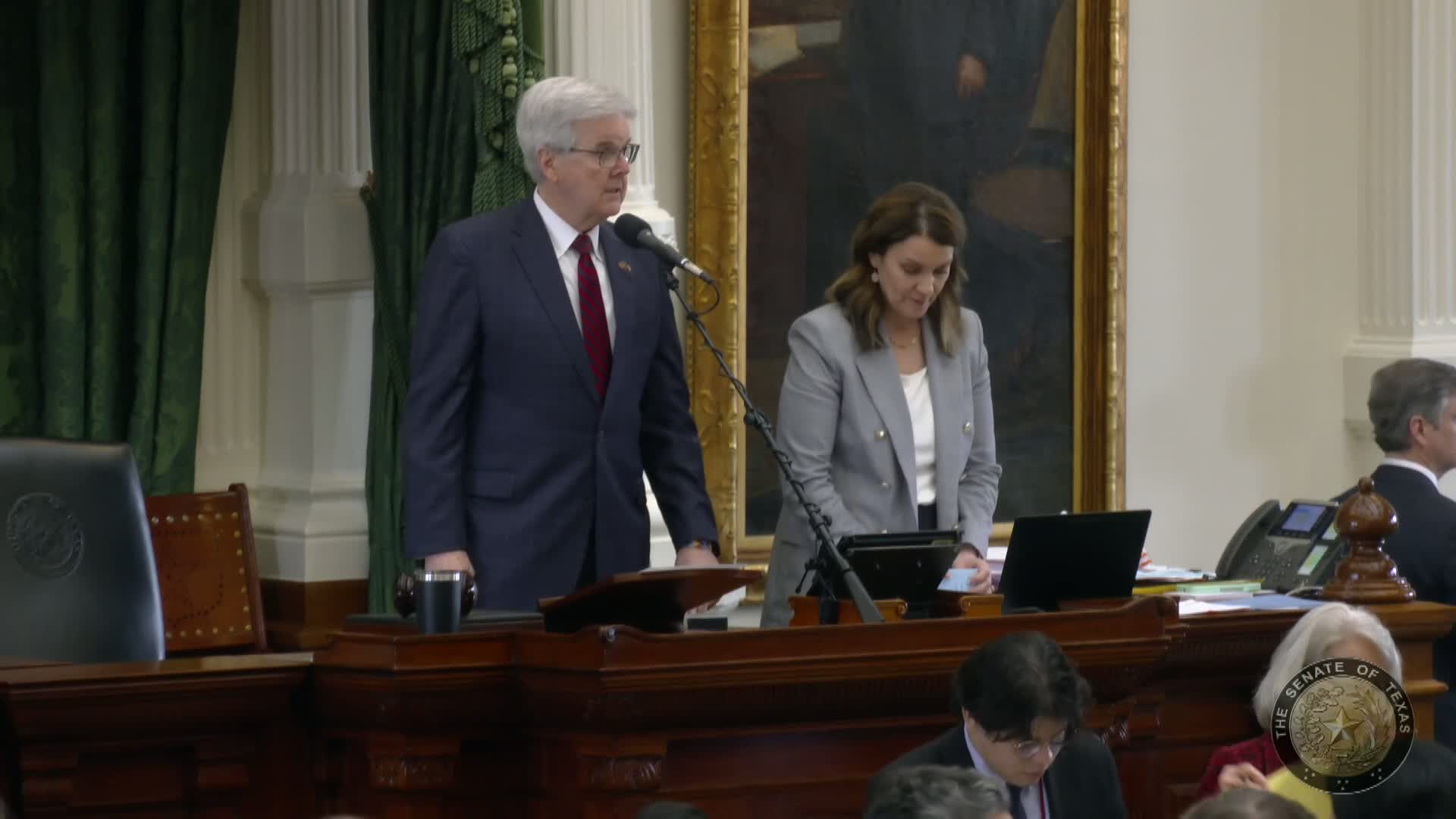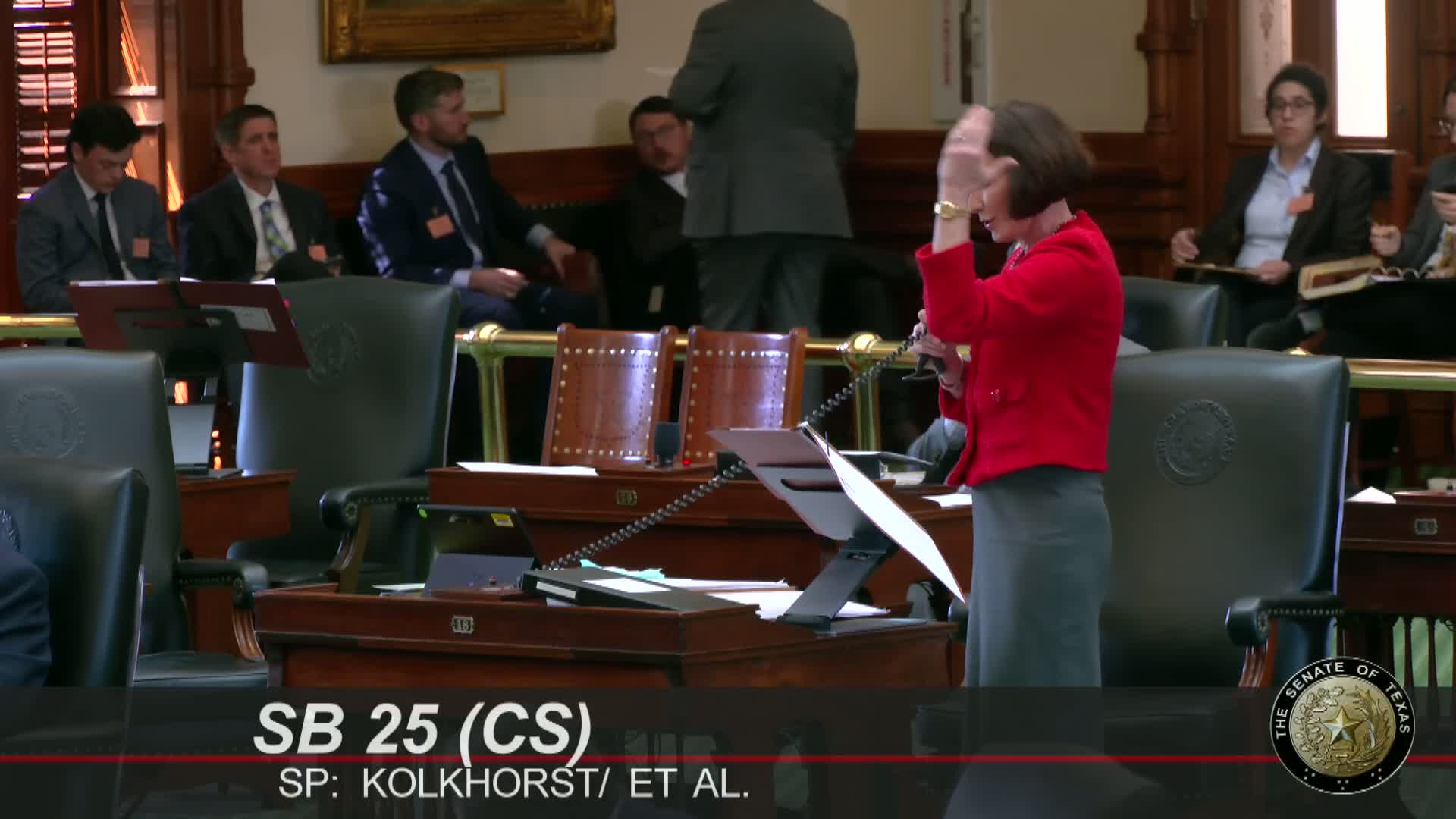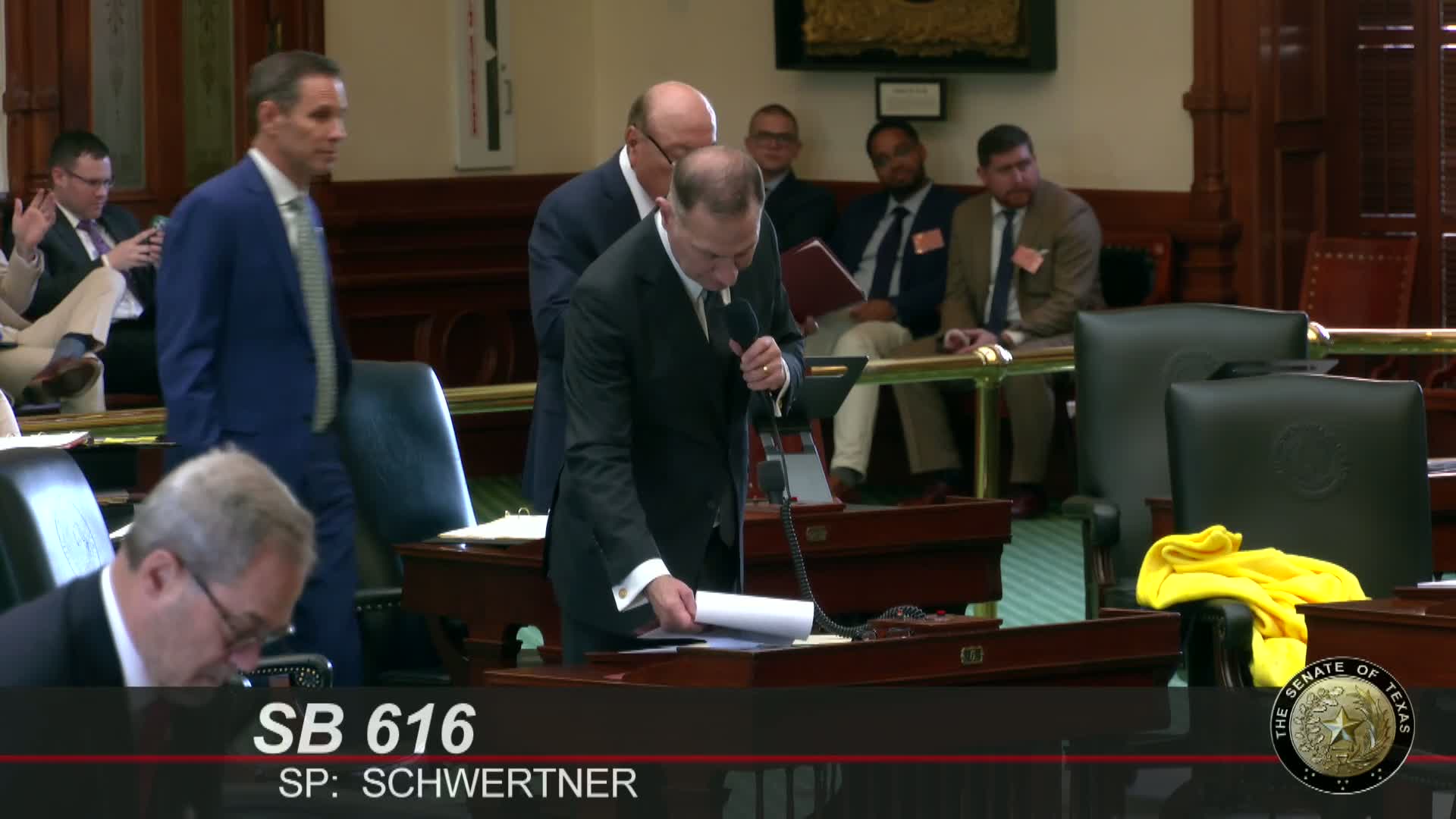Article not found
This article is no longer available. But don't worry—we've gathered other articles that discuss the same topic.

Senate approves judicial pay increase tied to accountability reforms; debate exposes concern over transparency vs. punitive oversight

Senate adopts trio of bills criminalizing AI-generated child sexual imagery and deepfake explicit media

Senate advances nutrition and school-food package, approving Kolkhorst labeling measure and school-meal additive ban

